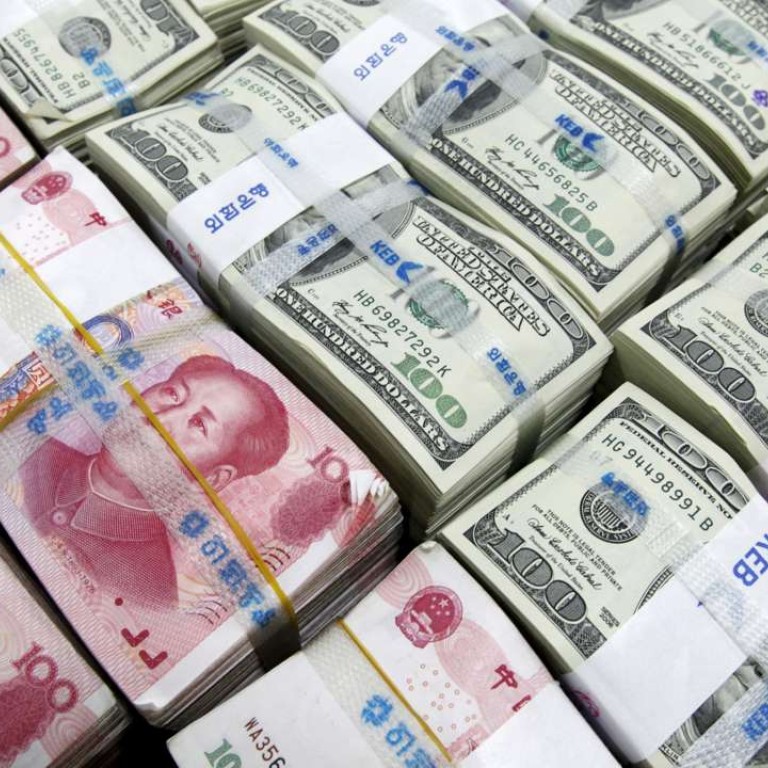
Regulator to increase scrutiny of ‘fake’ overseas deals used to move capital out of China
China’s outbound direct investment spiked at US$102.75 billion in the first seven months, a 61.8 per cent year-on-year surge
China’s foreign exchange regulator has pledged to up the ante in its clampdown of what it calls “fake” overseas investments, after some individuals and companies were found to be using false deals to move assets out of the country.
But officials insist capital outflow levels are easing.
Guo Song, the State Administration of Foreign Exchange (SAFE) director-general of Capital Account Management, said on Thursday that in the past year it had found cases of assets being moved overseas, which were falsely claimed as being for mergers or acquisitions.
Aggressive outbound deals by wealthy Chinese have been encouraged by the government, as part of its “going global” economic initiatives.
But analysts say that in some cases, aggressive outbound deals pushed by deep-pocketed Chinese buyers, have proved little more than ways of moving their money outside of the country, amid an economic slowdown and a weakening yuan.
China’s outbound direct investment spiked at US$102.75 billion (HK$796.92 billion) in the first seven months, a 61.8 per cent year-on-year surge. Foreign direct investment into the country rose just 4.3 per cent year on year to $77.13 billion in the same period, official data shows.
Guo said no large amounts of capital outflow via fake investment deals has been detected.
“We support genuine outbound investment that follows the rules, but we will maintain a strict crack down on fake methods...it is a key concern,” he said.
As for the latest wave of US-listed Chinese companies seeking listed status in the mainland, Guo said SAFE would support their currency exchange demands to delist from the US market, but “will avoid companies with arbitrage intentions”.
More than 30 US-listed Chinese companies are pushing for privatisation in the US and eyeing a relisting in the domestic A-share market.
We support genuine outbound investment that follows the rules, but we will maintain a strict crack down on fake methods...it is a key concern
A key motivator behind the wave is the higher valuations of listed companies in China. But the privatisations often require large amounts of currency to be exchanged denominated in US dollars, which could further drain China’s declining foreign reserves.
Guo said SAFE would support “normal outbound merger and acquisition deals, but would also maintain the balance of income and expense”, and noted the pressures on capital outflow was easing.
China’s foreign exchange reserves dropped to their lowest since January 2012 in August.
The US dollar value of the reserves decreased by US$15.9 billion to US$3.19 trillion in August, following a small decline of US$4.1 billion in July.
Analysts said China’s capital outflows had two primary drivers – the unwinding of carry positions and the purchase of foreign assets by Chinese residents and companies.
Iris Pang, an analyst with Natixis, said strong motivation still exists, particularly for the second type.
“People and companies in China have a strong desire to allocate part of their wealth to overseas markets, as domestic investment returns decline and the property market becomes increasingly frothy and risky.
“The outlook of the yuan has dampened as the US heads for possible interest rate hikes by the end of this year, and suggests more hawkish moves next year,” she said.
Larry Hu and Jerry Peng, analysts with Macquarie, said capital controls “are more effective” against the second type of capital flight, which is largely domestic money.
“For carry trade unwinding or hot money flows, it’s much harder to control as it’s all foreign money,” they said in a research note issued Wednesday.
Fortunately, they said hot money is not unlimited, estimating 60 per cent of the US$742 billion carry trade inflows from the first quarter in 2009 to mid-2014 had already left.
“As such, the pressure on capital outflow has eased lately.
“Some domestic residents still have the motivation to move money overseas, but that’s much easier for the regulator to control.”

